Challenges aplenty at first home-grown wind farm
by Razina Munshi,
2013-11-13 17:49:45.0
RENEWABLE technology is uncharted territory for many South African builders. When Basil Read Matomo was the successful bidder of a wind energy project in the Eastern Cape, it sent engineers to Italy to inspect a farm and learn how to erect wind turbines.
Months later, the company’s staff began to erect its own 3MW turbines, at the MetroWind Van Staden wind farm in Nelson Mandela Bay. The turbines rise 150m, as high as Johannesburg’s tallest building, the Carlton Centre.
It was the first time Basil Read had worked on a project of this nature, group CEO Marius Heyns said. The knowledge transfer gave the company an edge, and it has also developed capacity to manage hydroelectric, solar and biofuel projects.
Van Staden’s wind farm was selected during round one of the energy department’s renewable energy Independent Power Producer procurement programme.
The R550m project has an installed capacity of 27MW. The turbines have a lifespan of 20 years and will produce 80,000MWh/year for the Nelson Mandela Bay municipality. This is enough to power almost 6,000 households.
But new technology, unfamiliar partners and even the forces of nature presented challenges to all the companies involved. The civil structures were built by Basil Read subsidiary Newport, electrical work was undertaken by Edison, the turbines were sourced from Chinese manufacturer Sinovel and Grindrod-subsidiary Vanguard transported and erected them.
Van Staden’s project manager Jeff Pipe recounts the logistics of moving a 56.5m polyfibre blade from the Nqgura port to the farm. A 55m truck was used to make the 57km journey. Roads had to be closed and traffic diverted.
The team spend about six days erecting each turbine. But in the event of rain — or even heavy wind conditions — work halted.
And geotechnical challenges were an additional — and costly — spanner in the works. A specialist had to be brought in to ensure that natural settling of the foundation was within calculations.
"There is no room for shortcuts, especially with geotechnical work. We spend almost R15m more than expected and are not in a position to ask the client for more money. We have been very, very thorough," Mr Pipe said.
Basil Read chose to partner with 3E Renewable Energy Services, a South African company with international wind farm expertise, for the operation and management of the farm.
Sourcing turbines from a Chinese company came with its own challenges. The contract was one of Sinovel’s first outside China, Basil Read Energy MD Ian Curry told Business Day. This made the negotiations particularly tricky, even if the turbines were bought at a good price.
Aside from language and cultural barriers, the way the Chinese conduct business is vastly different, he said.
The team spent many additional hours checking that the specifications of the turbines were of the right quality.
Basil Read Energy, which develops, finances, owns and operates wind, solar and hydro projects, is one of the shareholders of the project. Three impoverished local communities have a 5% stake, while Old Mutual is a 35% stakeholder. The project is financed by a number of local banks.
By the end of last month, all nine turbines were erected. Mr Pipe said the farm was on track to begin generating power in February next year.
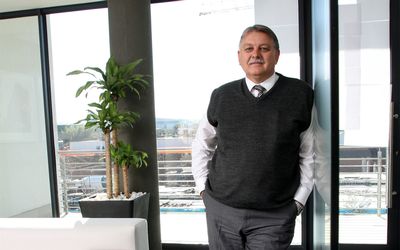
Basil Read CEO Marius Heyns. Picture: FINANCIAL MAIL
RENEWABLE technology is uncharted territory for many South African builders. When Basil Read Matomo was the successful bidder of a wind energy project in the Eastern Cape, it sent engineers to Italy to inspect a farm and learn how to erect wind turbines.
Months later, the company’s staff began to erect its own 3MW turbines, at the MetroWind Van Staden wind farm in Nelson Mandela Bay. The turbines rise 150m, as high as Johannesburg’s tallest building, the Carlton Centre.
It was the first time Basil Read had worked on a project of this nature, group CEO Marius Heyns said. The knowledge transfer gave the company an edge, and it has also developed capacity to manage hydroelectric, solar and biofuel projects.
Van Staden’s wind farm was selected during round one of the energy department’s renewable energy Independent Power Producer procurement programme.
The R550m project has an installed capacity of 27MW. The turbines have a lifespan of 20 years and will produce 80,000MWh/year for the Nelson Mandela Bay municipality. This is enough to power almost 6,000 households.
But new technology, unfamiliar partners and even the forces of nature presented challenges to all the companies involved. The civil structures were built by Basil Read subsidiary Newport, electrical work was undertaken by Edison, the turbines were sourced from Chinese manufacturer Sinovel and Grindrod-subsidiary Vanguard transported and erected them.
Van Staden’s project manager Jeff Pipe recounts the logistics of moving a 56.5m polyfibre blade from the Nqgura port to the farm. A 55m truck was used to make the 57km journey. Roads had to be closed and traffic diverted.
The team spend about six days erecting each turbine. But in the event of rain — or even heavy wind conditions — work halted.
And geotechnical challenges were an additional — and costly — spanner in the works. A specialist had to be brought in to ensure that natural settling of the foundation was within calculations.
"There is no room for shortcuts, especially with geotechnical work. We spend almost R15m more than expected and are not in a position to ask the client for more money. We have been very, very thorough," Mr Pipe said.
Basil Read chose to partner with 3E Renewable Energy Services, a South African company with international wind farm expertise, for the operation and management of the farm.
Sourcing turbines from a Chinese company came with its own challenges. The contract was one of Sinovel’s first outside China, Basil Read Energy MD Ian Curry told Business Day. This made the negotiations particularly tricky, even if the turbines were bought at a good price.
Aside from language and cultural barriers, the way the Chinese conduct business is vastly different, he said.
The team spent many additional hours checking that the specifications of the turbines were of the right quality.
Basil Read Energy, which develops, finances, owns and operates wind, solar and hydro projects, is one of the shareholders of the project. Three impoverished local communities have a 5% stake, while Old Mutual is a 35% stakeholder. The project is financed by a number of local banks.
By the end of last month, all nine turbines were erected. Mr Pipe said the farm was on track to begin generating power in February next year.













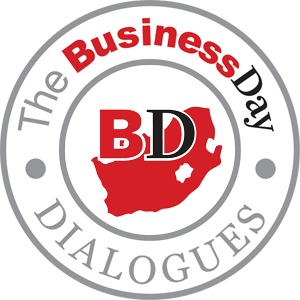 Read more about the Business Day Dialogue on renewable energy, presented with Nedbank Capital
Read more about the Business Day Dialogue on renewable energy, presented with Nedbank Capital


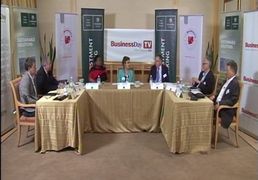
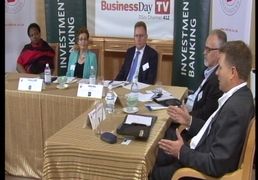
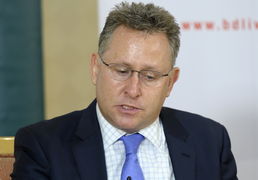
 Register for our
Register for our 



Change: -0.47%
Change: -0.57%
Change: -1.76%
Change: -0.34%
Change: 0.02%
Data supplied by Profile Data
Change: -1.49%
Change: 0.08%
Change: -0.47%
Change: 0.00%
Change: -0.04%
Data supplied by Profile Data
Change: -0.34%
Change: 0.03%
Change: -0.10%
Change: -0.22%
Change: -0.69%
Data supplied by Profile Data
Change: -0.28%
Change: -1.15%
Change: -0.07%
Change: -1.21%
Change: -0.22%
Data supplied by Profile Data